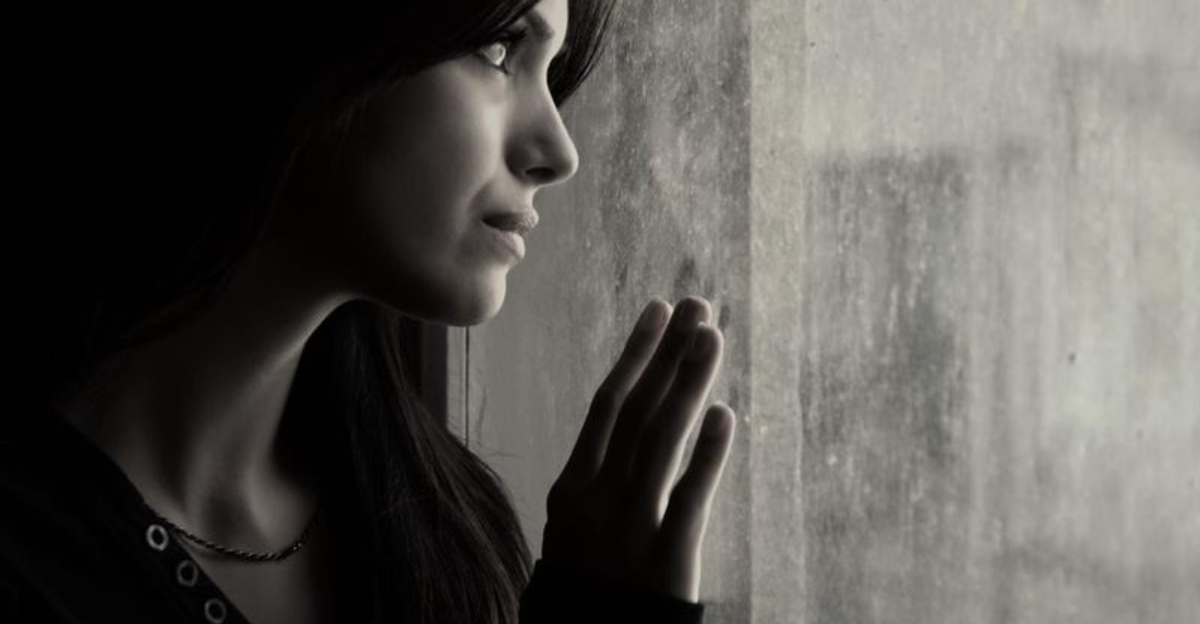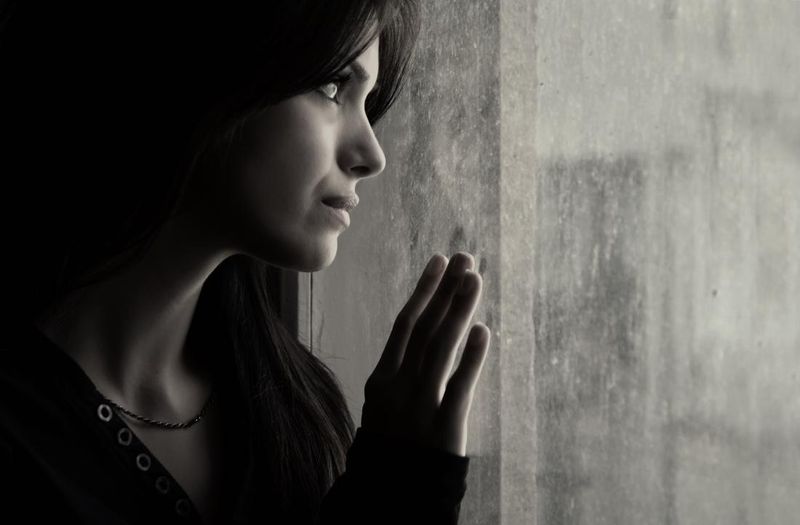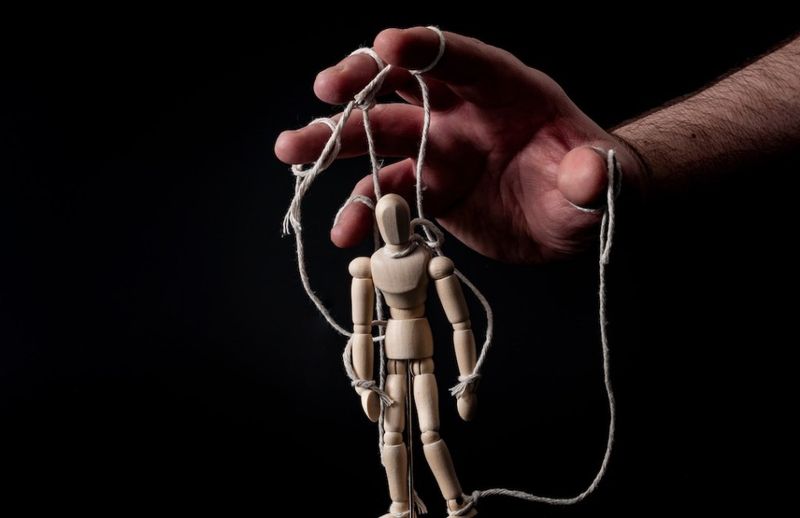17 Subtle Signs Your Relationship Is Emotionally Exhausting You

Relationships can be a source of joy and support, but sometimes they become draining without us realizing it. Recognizing the subtle signs that your relationship is emotionally exhausting is crucial for maintaining your well-being.
These aren’t the glaring red flags—they’re the quiet indicators that your emotional reserves are being depleted. Understanding these signs can help you reflect on the dynamics of your relationship and make informed decisions about your emotional health.
1. You feel more relief when they’re not around

It might sound counterintuitive, but sometimes being away from your partner can feel like a breath of fresh air. When absence brings relief instead of longing, it signals an emotional mismatch. This feeling can arise when constant tension or emotional demands overshadow the joys of being together.
You might find solace in solitary activities or cherish moments spent with friends, feeling lighter and more at ease. It’s as if their presence weighs heavily on your spirit, and their absence is your chance to breathe freely again. Such dynamics can slowly erode the emotional fabric of your relationship, leaving you questioning its viability.
2. Conversations leave you drained—not heard

Have you ever walked away from a conversation with your partner feeling more exhausted than supported? It’s as if every discussion is a battle, leaving you emotionally depleted. Instead of feeling heard and validated, you find yourself overwhelmed, as if the dialogue is a one-way street.
This can happen when one partner dominates the conversation or dismisses the other’s feelings, turning exchanges into draining experiences. The joy of sharing and connecting is replaced by the stress of navigating through emotional landmines. Over time, such interactions can sap the energy out of you, leaving you weary and unfulfilled.
3. You replay arguments in your head long after they end

After every disagreement, do you find yourself trapped in a loop, replaying the scenes over and over? This mental replay can indicate unresolved issues or emotional dissatisfaction. It suggests that your mind is struggling to process what happened, seeking closure that never comes.
The internal dialogue can become exhausting, making it hard to focus on other aspects of life. It’s as if the argument never ends, continuing to occupy space in your mind long after the words have faded. Such mental preoccupation can strain your emotional resources, leaving you tired and uncertain about the relationship’s future.
4. You feel like you’re constantly explaining yourself

Explaining your actions, thoughts, or feelings repeatedly can feel like a never-ending cycle. When misunderstandings persist despite your best efforts to clarify, it suggests a deeper disconnection. This constant need to justify yourself can become emotionally taxing, as if you’re always defending your very existence.
Over time, it erodes your confidence, making you question your own intentions and desires. It’s as if the communication gap is an insurmountable barrier, leaving you weary from the endless explanations. Such dynamics can be draining, slowly chipping away at the emotional foundation of your relationship.
5. They call you “too sensitive” when you express hurt

Being labeled as ‘too sensitive’ can feel like a dismissal of your legitimate feelings. It’s a subtle way of minimizing your emotions, making you doubt your own experiences. When your partner brushes off your pain this way, it signals a lack of emotional empathy.
This phrase can become a weapon, used to deflect responsibility and invalidate your feelings. It leaves you questioning your own perceptions, wondering if you’re exaggerating your hurt. Over time, this can diminish your self-worth, as if your emotions are mere inconveniences. It’s a sign of emotional exhaustion, where your feelings are perpetually invalidated.
6. You dread sharing your real feelings

When expressing your true emotions feels daunting, it might indicate a lack of emotional safety. The fear of judgment or misunderstanding can make sharing seem like a perilous endeavor. It’s as if vulnerability comes at the cost of peace, where honesty might disrupt the fragile equilibrium. Over time, this hesitation can build emotional walls, creating distance between partners.
The dread of opening up signals that the relationship may not be providing the support and understanding you need. This emotional restraint can be exhausting, as if you’re carrying the weight of unsaid words and unexpressed feelings.
7. You filter everything to avoid setting them off

Walking on eggshells becomes second nature when you constantly filter your words to prevent conflict. It’s a sign that the emotional environment is tense, where any wrong word might spark unrest. This hyper-vigilance can become exhausting, as if you’re continually censoring yourself to maintain peace.
Over time, it erodes open communication, replacing authenticity with guarded interactions. The fear of triggering a negative response keeps you in a state of perpetual caution. Such dynamics can drain your emotional energy, making you feel as though you must always be on alert, unable to relax into genuine expression.
8. Their moods control your peace

When your emotional state is tethered to your partner’s mood, it can create an unstable environment. The unpredictability becomes a source of stress, as if your peace depends on their emotional weather. This dependency can lead to anxiety, where you’re constantly gauging their mood to determine your own.
Over time, this imbalance can sap your energy, leaving you feeling powerless and exhausted. It’s a sign that your emotional well-being is compromised, overshadowed by their emotional tides. The inability to maintain your peace independent of them indicates an emotionally draining dynamic, where harmony feels elusive.
9. You feel guilty for needing space

The need for personal space is natural, but when it’s met with guilt, it suggests an underlying issue. Feeling bad for desiring time alone can indicate a lack of boundaries within the relationship. It’s as if your need for solitude is perceived as a threat, rather than a healthy requirement.
Over time, this guilt can weigh heavily, as if you’re being selfish for prioritizing your well-being. The dynamic becomes one where personal time is seen as a luxury, not a necessity. Such feelings can be draining, leaving you torn between fulfilling your needs and maintaining harmony in the relationship.
10. You second-guess yourself constantly

When doubt becomes your constant companion, it signals a deeper issue within the relationship. Constantly second-guessing yourself can erode your confidence, making you question your instincts. It’s as if your decisions are undermined, leaving you in a perpetual state of uncertainty.
This mental tug-of-war can be exhausting, draining your emotional energy as you seek validation. Over time, the lack of trust in your own judgment can create a dependency on external approval. It becomes a cycle of doubt and reassurance, where your peace is continually disrupted. Such dynamics can leave you emotionally weary, constantly seeking clarity.
11. You tiptoe around topics to keep the peace

Avoidance becomes an unspoken rule when certain topics are off-limits to maintain harmony. This delicate dance around sensitive subjects indicates underlying tensions that remain unaddressed. It’s as if silence becomes a tool for peace, where speaking up might shatter the fragile calm. Over time, this avoidance can create emotional distance, as important issues are swept under the rug.
The fear of conflict keeps you from meaningful conversations, leaving you stuck in a cycle of superficial interactions. Such dynamics can be emotionally draining, as if you’re constantly tiptoeing through a minefield to preserve peace.
12. You feel lonelier with them than without them

The irony of feeling lonely in a relationship highlights a disconnect that words fail to bridge. When your partner’s presence amplifies your solitude, it signals an emotional gap. It’s as if shared moments are overshadowed by an unspoken distance, leaving you yearning for connection.
Over time, this loneliness can become suffocating, as if their companionship is more absence than presence. The emotional isolation within the relationship can be exhausting, making you question the essence of togetherness. Such dynamics underscore the need for deeper communication and understanding, where loneliness creeps in despite physical proximity.
13. Apologies come with tension—not change

Apologies that lack sincerity or lead to change can be more harmful than helpful. When tension lingers after saying ‘I’m sorry,’ it suggests unresolved issues. It’s as if apologies are mere words, devoid of the intention to mend and grow. Over time, this pattern can breed resentment, as repeated offenses go unaddressed. The lack of genuine change implies a superficial commitment to the relationship’s well-being. Such dynamics can be emotionally taxing, as if apologies are empty gestures that fail to heal wounds. The absence of meaningful resolution leaves you trapped in a cycle of unresolved conflict.
14. Your energy feels low for no clear reason

Feeling persistently drained without a tangible cause can point to emotional exhaustion. It’s as if the relationship saps your vitality, leaving you fatigued and listless. This unexplained weariness can be a symptom of deeper dissatisfaction, where emotional demands overshadow joy.
Over time, the depletion of energy affects all aspects of life, making even small tasks feel burdensome. The lack of enthusiasm and motivation can be a silent indicator of the relationship’s toll on your well-being. Such dynamics highlight the need for introspection, where emotional exhaustion seeps into every corner of life.
15. You’ve stopped talking about the future

When future conversations become scarce, it signals a potential rift in the relationship. It’s as if the road ahead is too uncertain or uninspiring to discuss. This reluctance to plan together reflects doubts about the relationship’s longevity and direction. Over time, the absence of future-oriented discussions can create an emotional stagnation, where growth feels elusive.
The lack of shared dreams indicates a disconnect that hampers the relationship’s development. Such dynamics can be emotionally draining, as if the partnership is stuck in a loop without progression. It underscores the need to reevaluate the relationship’s goals and aspirations.
16. You only feel safe when things are perfectly calm

Relying on perfect calmness to feel secure highlights an underlying instability. When peace is fragile and easily disrupted, it indicates an emotional volatility within the relationship. It’s as if safety depends on external conditions, rather than internal trust and understanding. Over time, this reliance on calmness can become exhausting, as if you’re always on edge, waiting for the next disruption. The need for perfect peace underscores a lack of emotional resilience, where any disturbance feels overwhelming. Such dynamics can drain your emotional resources, leaving you constantly seeking tranquility that feels elusive.
17. You’re more emotionally tired than emotionally connected

Emotional fatigue can overshadow the sense of connection, making interactions feel burdensome. When the effort to relate outweighs the joy of companionship, it signals an imbalance. It’s as if maintaining the relationship requires more energy than it provides, leaving you drained. Over time, this emotional tiredness can dilute the connection, where warmth and closeness feel out of reach.
The lack of mutual support and understanding fosters an emotional disconnect, making the relationship a source of exhaustion rather than fulfillment. Such dynamics highlight the need for reflection and communication, where emotional fatigue signals a deeper issue.
